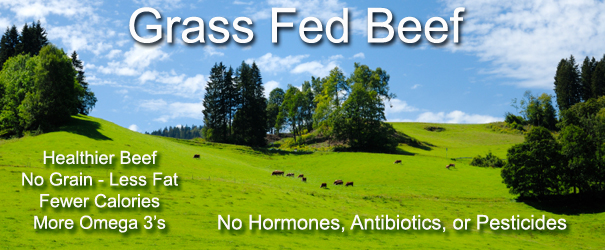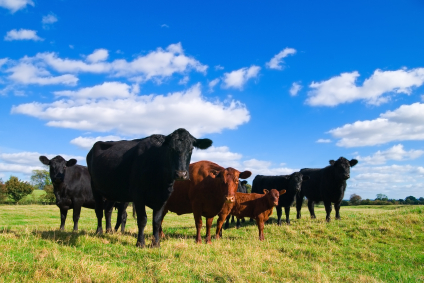Does the Usda Define "Pasture Fed" Qualifications for Beef.

What is the difference between Grass-Fed Beef and Organic Beef?
There is a lot of overlap between organic and Grass Fed beef, because both practices represent a dedication to raising healthier, less chemically-contaminated cows. However, not every cow raised on the pasture is USDA Certified Organic, and not every organic cow is fed a 100% grass diet or allowed unlimited access to the range. If you have to choose between one or the other, it's important to understand what each label means, and how they each impact the health of your family.
What Grass Fed Beef Means
Grass fed beef simply means that the cattle were allowed to forage and graze for their own fresh food. They may be given close substitutes like alfalfa during the winter, but unlike grain-fed animals, the emphasis is still on providing the closest thing to a natural diet as possible. Grains are higher in calories, and encourage the cows to grow much faster and cheaper, but grass is much higher in key nutrients like Omega -3s and B vitamins, and result in steaks that are leaner, healthier, and much more flavorful. This is why grass-fed meats are strongly recommended by the Paleo Diet. For a more extensive look at the benefits of grass fed beef, click here.
What Organic Beef Means
The organic label doesn't so much describe how the cattle was raised as list all the ways that they can't be raised. The cows cannot be confined in a feed lot for any extended period of time, cannot be over-crowded or kept in unsanitary conditions, and cannot be directly or indirectly exposed to artificial pesticides, fertilizers, antibiotics, hormones, GMOs, or other synthetic contaminants. Click here for more on the meaning and benefits of organic beef.
 The Overlap: Some of the Benefits Without the Label
The Overlap: Some of the Benefits Without the Label
Certified organic beef can be raised on a diet of corn or grain, but they must have at least some access to a pasture, so at least some of their nutrition will probably come from grass. However, unless you talk to the farmer directly or do your own laboratory analysis, it's impossible to say how much. USDA Certified Organic guarantees that the beef will be free from artificial contaminants, and suggests that it might be higher in nutrition as well.
Grass fed beef does have many of the benefits of organic beef, simply as side effects to raising their cattle on a pasture. Because the cows are in their natural habitat, with access to all of the open space you need to support a herd of cattle, their lives are more humane, less stressful, and much more sanitary, which means their immune systems are under less pressure, don't require artificial assistance, and their meat is much less likely to be contaminated with diseases like E. Coli. If antibiotics are used on grass-fed cattle, it's only in rare cases when the animals are actually sick, not constantly like feed-lots have to use them. Why pay for gallons of antibiotics if your animals are healthy and clean all on their own? Cows eat all kinds of plants on the pasture, including weeds, so it doesn't make sense to spray their pastures full of herbicides. Pastures are essentially wild, with their own balanced ecosystem and plenty of help from cow manure, so pesticides and artificial fertilizers are really unnecessary. While grass-fed, non-organic beef may be exposed to more chemicals than organic, it's certainly cleaner than conventional beef.
Remember: Organic Certification is Expensive!
A lot of small business, grass-fed cattle farmers really do care about quality, and raise their animals under conditions that would be certified as organic, if they could afford the label.
Grass-fed beef is a very simple label to regulate; either you feed the animals grass or you don't. Organic, on the other hand, is extremely complex. It involves huge amounts of record keeping, proving that your land has not been exposed to artificial chemicals for at least three years, that the living conditions of the animals meet a multitude of standards, and that everything you feed the cattle also comes from a certified organic source. It also means paying a USDA official to come and double check your work every year, which not every farm is willing or able to pay. Just because a grass-fed steak is not Certified Organic doesn't necessarily mean that it's of poorer quality.
Today, there are still only so many cattle farmers dedicated to producing this quality beef, many of them only families or individuals wanting to make a difference. We cannot always guarantee that we will have access to steaks and burgers that are both grass-fed and USDA Certified Organic, although we can assure you that we vet our suppliers thoroughly, and are always on the lookout for the very best product. Whether you go with grass-fed or organic beef, you'll be taking a big step towards improving your family's health and supporting quality food over cheap quantity.
Source: https://toplinefoods.com/grass-fed-beef-meat-vs-organic-beef-meat/
0 Response to "Does the Usda Define "Pasture Fed" Qualifications for Beef."
Postar um comentário